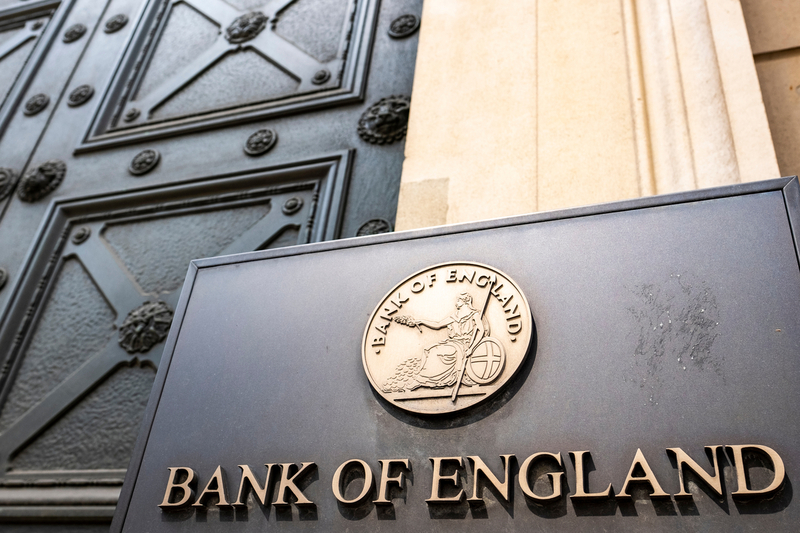Via Atal: Unlocking global growth

Group Editor of Shard Financial Media, which encompasses the Credit Strategy, Reward Strategy, TRI and FSE brands.
 Michal Lodej
Michal LodejGroup Editor of Shard Financial Media, which encompasses the Credit Strategy, Reward Strategy, TRI and FSE brands.
What inspired you to take on the role of President and CEO of PRA Group?
Having served on the PRA Group Board of Directors since 2015 and having been involved in consumer markets for a very long time, when I was asked to serve as CEO, it was an easy decision to accept.
When considering a new role, I ask myself three questions:
1. Do the team and culture across the organisation make it an environment where I will thrive and help others do the same?
2. Will it be intellectually stimulating and challenging?
3. Are there exceptional opportunities for driving growth?
My role as CEO of PRA Group ticks all three boxes—already, I am working with an enthusiastic and talented team to drive organic growth, stronger returns and enhanced shareholder value.
How would you describe PRA Group as it is today?
A key element of what we do is engaging with and buying portfolios of nonperforming loans from banks and other creditors worldwide. In this area, we are privileged and grateful for the meaningful conversations we have had with these organisations about our business and for the endorsements they have provided. We will continue to invest considerable effort into cultivating these relationships.
In terms of the credit environment, during the last few years—particularly 2020 to 2022—there have been fewer charge-offs of nonperforming loans, which meant that our purchasing was relatively muted over this time frame. However, we are now at an important inflection point in the consumer credit cycle, with volume significantly increasing, and are working with sellers to ensure pricing is commensurate with adequate returns.
Competition can influence pricing too, especially in Europe. We exercised significant restraint in recent years while portfolios were overpriced in certain markets. We believe competition may abate in Europe as a few buyers have scaled back activity. In the US, the competitor set has largely remained stable, which has translated to pricing improving as the supply of portfolios continues to increase.
In terms of our geographical diversity, PRA Group Europe today represents more than 50% of our estimated remaining collections (ERC). The UK remains our largest market in the region. With a strong track record, we are well positioned for the future. We will continue to focus on driving profitability in the UK and across our entire global footprint.
How did your roles at Citigroup and Goldman Sachs prepare you to lead PRA Group?
I held various senior executive roles during my 27-year career at Citigroup, including CEO of the North American credit card business overseeing 30,000 employees, 60 million customers and earning record results in the midst of a changing regulatory landscape. A key part of our success was leveraging analytics and data to drive growth. At PRA Group, I am also ensuring we move actively and expeditiously to keep pace with the fast-moving digital framework in which our customers operate.
In terms of global leadership, my decades of experience across continents means I bring a network of individuals, suppliers and partners that I am already actively engaging to help advance PRA Group’s business.
Through my roles at Citi, service on the Boards of Goldman Sachs Bank USA and PRA Group, and my work as senior advisor to McKinsey & Company and MissionOG, I have built up a diverse skillset surrounding the consumer-related side of business—from navigating interactions with sellers and third parties to understanding consumer behaviour and marketing. This is helpful at PRA Group because the collections process is intertwined with marketing—customers have choices on how they spend scarce resources and our role is to create awareness, build trust in our business and identify and deliver on customer needs.
What role does PRA Group play in the global economy?
We are a fundamental component of the global financial ecosystem, returning capital to lenders to help expand financial services and grow the economy, while providing expertise and affordable solutions for customers who have been unable to pay their debts.
From a financial stability point of view, nonperforming loans tie up bank resources and can have negative consequences on balance sheets. At PRA Group, we are trusted to restore capital to banks and other creditors on a timely basis—our portfolio purchases have returned billions of dollars over the years, expanding the financial services available to consumers and businesses and supporting global growth.
What differentiates PRA Group from others in the financial services sector? How will you look to develop PRA Group’s position?
Our single largest differentiator is that we are the most geographically diversified company in this asset class. There is no other European player I’m aware of with the same US foothold—and our US competitors have a toehold, rather than a foothold, in Europe. The diversification provided through our European business is key, and we will be looking to build on this success.
Because of our experience in these markets, we have trusted, long-term relationships with sellers around the world. Our aspirations include deepening our seller relationships and opening addressable markets in which we are not currently active participants.
We are taking important and positive steps in the right direction and have plenty of opportunities to build on our strong foundation. We are focused on optimising business processes and our cash generation potential, and I am more than encouraged by where we are heading and the opportunities that lie ahead.
How important are culture and values at PRA Group? What makes the culture of your organisation special?
Our values are central to our success and reason for being. We have had the ‘PRA CARES’ values since we were formed nearly 30 years ago. ‘CARES’ stands for committed, accountable, respectful, ethical and successful. They are not only a core tenet of operating our business in an ethical and compliant way, but they also set the tone for how we treat our customers and each other. I don’t believe we can exhibit empathy and customer understanding externally if we don’t embed these values internally.
These CARES values also help define how we operate as a team and enable us to be candid in discussions. They promote the curiosity to ask “why” and consider different paths, encouraging us to approach each business decision with creativity and energy, and to have the passion to chase down the next idea.
These are all elements we have today and hope to continue to develop over the next several years by continually seeking feedback from our employees. We value the talent we have at PRA Group deeply, and we must ensure our workforce has access to the tools they need to thrive—now and into the future.
What does leadership mean to you?
The way I have tried to lead and influence organisations is by establishing mutual respect and fostering a culture where all leaders are working together. Rather than being defined by one individual, our shared role is to create an inclusive and collaborative environment in which we harness the talent and expertise of those around us so our business can thrive.
Leadership is about first identifying people who are engaged, passionate and who feel responsible, and then valuing their service. At the root of true success is being effective at bringing people together to accomplish goals—this takes diligence, hard work, authenticity and the resolve to execute against daily objectives.
What do you like about PRA Group’s UK and European markets? Would you do anything differently here?
The diversity of our business across northern, southern and central Europe is fascinating. The people, the cultures, the opportunities different markets bring—all of these elements working in concert is incredible to watch and be a part of.
Our business in the UK and Europe is doing well and has established a compelling track record of thriving through multiple economic cycles.
While we are underrepresented in certain markets in Europe, we have a fantastic team addressing this by making investments where necessary. I’m very excited about the opportunity to further strengthen our European operations.
How are you finding the regulatory environment in the UK and elsewhere?
In the US, the regulatory environment is complicated and can be difficult. It’s a demanding, relatively inflexible, rules-based framework, and the level of process and execution required makes it challenging for new industry entrants.
In Europe, the environment is generally more principles-based and varies across geographies.
We understand regulation is necessary to ensure financial stability, and we maintain a robust compliance system and high ethical standards. As our industry evolves, we will continue to innovate while managing risk within a controlled, compliant environment, regardless of where we operate.
How are higher interest rates and the increased cost of living affecting PRA Group?
In two broad ways. When buying a portfolio, we pay in advance and collect over time. The increase in the cost of funding is a meaningful incremental cost to absorb. This pressurises returns, so we are having conversations with sellers to ensure the price of buying the debt is reflective of these developments.
On the receivables side, we know that consumers in some of our European markets are feeling the effects of inflation—they are experiencing higher food prices and mortgage rates among many other increases to the cost of living—so they are understandably more cautious. In these markets, we have observed fewer large one-time payments. However, the proportion of customers paying us has remained stable, so we believe this will cause a timing delay instead of an overall reduction in collections.
Do you anticipate there will be further consolidation in the debt purchaser sector in the UK and Europe?
Yes, I expect there will be. Three to six years ago, a number of players expanded quite aggressively and may have made purchases at an unsustainable price. Highly leveraged companies are having to step back from the debt purchasing processes, and some are seeing a reduced market value, so consolidation may be a solution over time.
What do you see as the main business opportunities for PRA Group? Which areas are you potentially interested in?
Optimising value from our existing portfolio of nonperforming loans is a significant opportunity and our highest priority at this time.
However, there are broad business areas in Europe in which we are not fully participating either because we haven’t yet built the experience in those areas, or because of views on collectability. Although we have continued to benefit from deep relationships with sellers to maintain investments and renew agreements, we have a lower market share of SMEs and secured business loans across Europe. We will continue to monitor both areas as potential opportunities over time.
In the US, we have good market shares with the larger banking community and there is an opportunity to build out to smaller niche players to have an appropriate market presence—there are a number of smaller fintech lenders that are not part of our traditional outreach, so it’s about understanding the nature of these businesses and their customer engagement practices.
Going forward, what are your key priorities? What does success look like for PRA Group?
Our number one priority is enhancing the performance of our US business, which has been impacted in the past couple of years due to overcollections and lower portfolio supply available for purchase during the COVID-19 pandemic, along with reduced collections from more recent vintages.
Over the past year, we have identified, tested, and rolled out a number of initiatives, both large and small, to address this underperformance. Some of these initiatives include enhancements to our legal collection activities, while others revolve around enhancing our call centre operations, including outsourcing and offshoring. We are very encouraged by the speed and scope of the initiatives underway, and believe we have line of sight to meaningfully improve our results in 2024 and beyond.
Some of our other priorities are capitalising on the increase in US portfolio supply, deepening and broadening our seller engagement globally and continuing to be regarded as the preferred enterprise to be considered by creditors in our markets. We are enhancing our core capabilities and leveraging information in an optimal way to create the best possible outcomes for our sellers, customers and PRA Group.
On the question of what success looks like for PRA Group, I would say it means embedding and building on our values and culture, so they evolve and remain relevant over the next decade. It also means ensuring we have a team and organisational capabilities that can run the business today and continue to drive forward our success in the long term.
Stay up-to-date with the latest articles from the Credit Strategy team
READ NEXT
UK Delays Basel 3.1 Banking Reforms to 2027
Octopus Energy Claims Crown as UK's Largest Household Energy Supplier
House seller gains fall below £100,000 in 2024
Get the latest industry news









